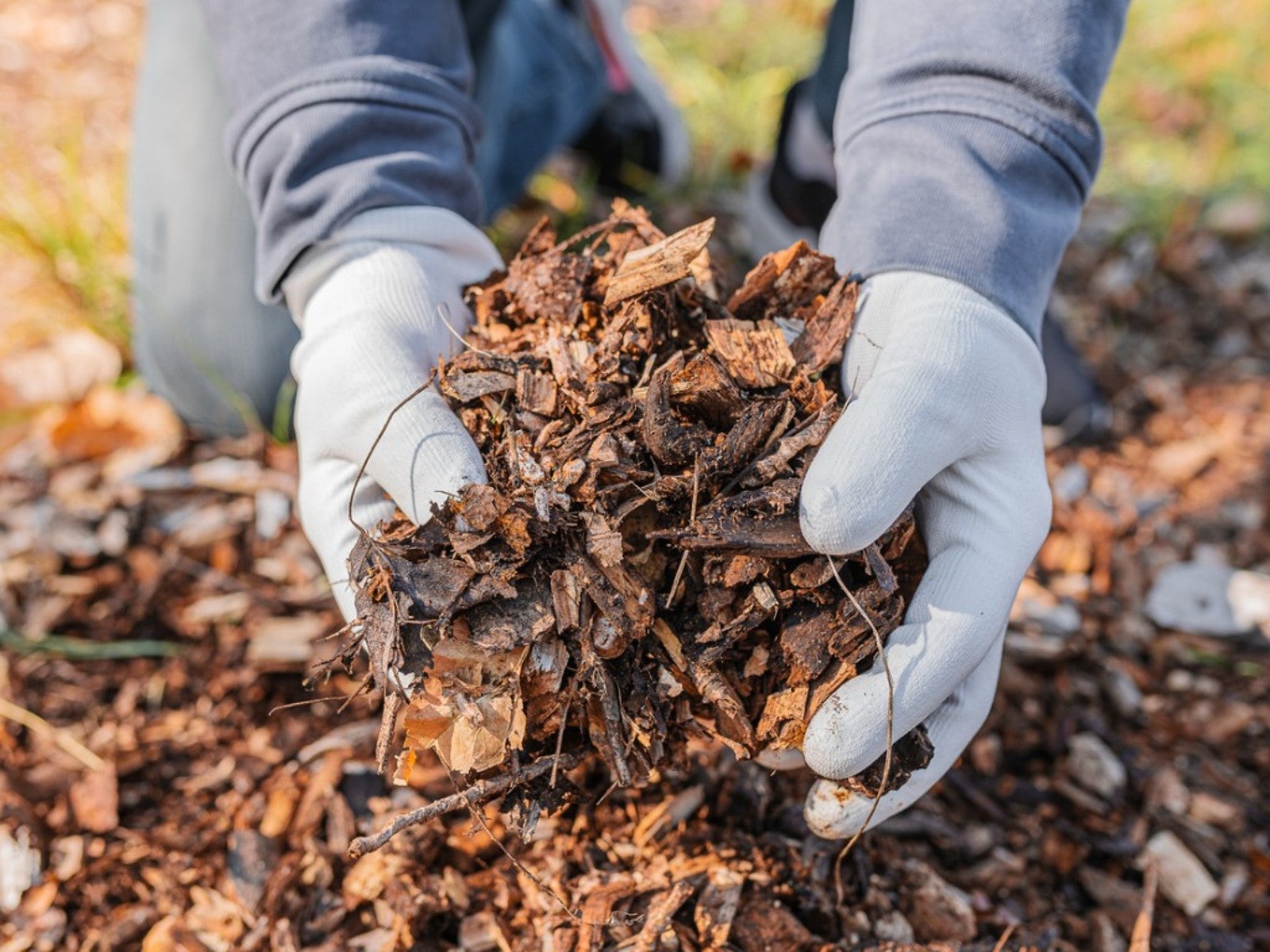Natural Mulch And Sustainable Mulching Methods


Sign up for the Gardening Know How newsletter today and receive a free copy of our e-book "How to Grow Delicious Tomatoes".
You are now subscribed
Your newsletter sign-up was successful
Mulching has a lot of benefits in the garden. It keeps moisture in the soil, keeps weeds down, controls heat, minimizes erosion, and more. Gardeners have a lot of mulching options, and there are many reasons to choose organic and sustainable mulches.
Sustainability in Mulching
Gardeners are increasingly aware of how their practices impact the environment and local ecosystems. Sustainability means using methods, tools, and materials that have minimal negative impact or that actively promote the health of the ecosystem.
For instance, more gardeners are planting native species to support local wildlife, attract pollinators, and avoid problematic invasive plants.
Not everyone gives a lot of thought to mulch. They have a few options at the garden center and choose what looks good. But, organic mulching and more sustainable choices can make a big difference.
Standard wood mulch, for instance, often contains toxic chemicals that leach into the soil. Wood mulch is usually recycled, which is good, but many of the original products were treated with chemicals, including creosote and chromated copper arsenate.
Choosing Natural and Organic Mulches
The good news is that you can choose from many alternatives to standard mulch. These organic and natural mulches have benefits for the environment and the garden:
- Pea gravel. Gravel and stone are great products for plants that need good drainage and that prefer dry soil, like those that work well in rock gardens and desert plants. Gravel is also one of the best mulches for controlling weeds.
- Straw. An excellent organic mulch for a vegetable garden is straw. It’s a natural material that is lightweight and clean. It holds moisture in the soil and prevents weed growth around your vegetables.
- Leaf litter. If you have a lot of trees in your yard, collect fall leaves and use them as mulch. This eliminates the need to collect and dispose of leaves. It’s a more natural solution that also protects your beds.
- Cocoa bean shells. Also known as hulls, the shells of cocoa beans are a byproduct of processing. You can buy these shells to mulch in your garden. It looks a lot like standard mulch, but it breaks down better and adds nutrients to the soil. Note: If you have a dog, be aware that like chocolate, the shells can be toxic if consumed.
- Living mulch. An idea that is catching on is to simply grow more plants to reduce the need for mulch. Fill in some empty spaces between plants in your beds with native groundcovers or cover crops that you can turn into the soil at the end of the growing season.
- Newspaper. If you subscribe to newspapers, recycle the pages as mulch. It’s not the most attractive option, but it recycles a material you use already and controls weeds. Most newspapers use organic inks, so you don’t have to worry about toxic chemicals.
Sign up for the Gardening Know How newsletter today and receive a free copy of our e-book "How to Grow Delicious Tomatoes".

Mary Ellen Ellis has been gardening for over 20 years. With degrees in Chemistry and Biology, Mary Ellen's specialties are flowers, native plants, and herbs.